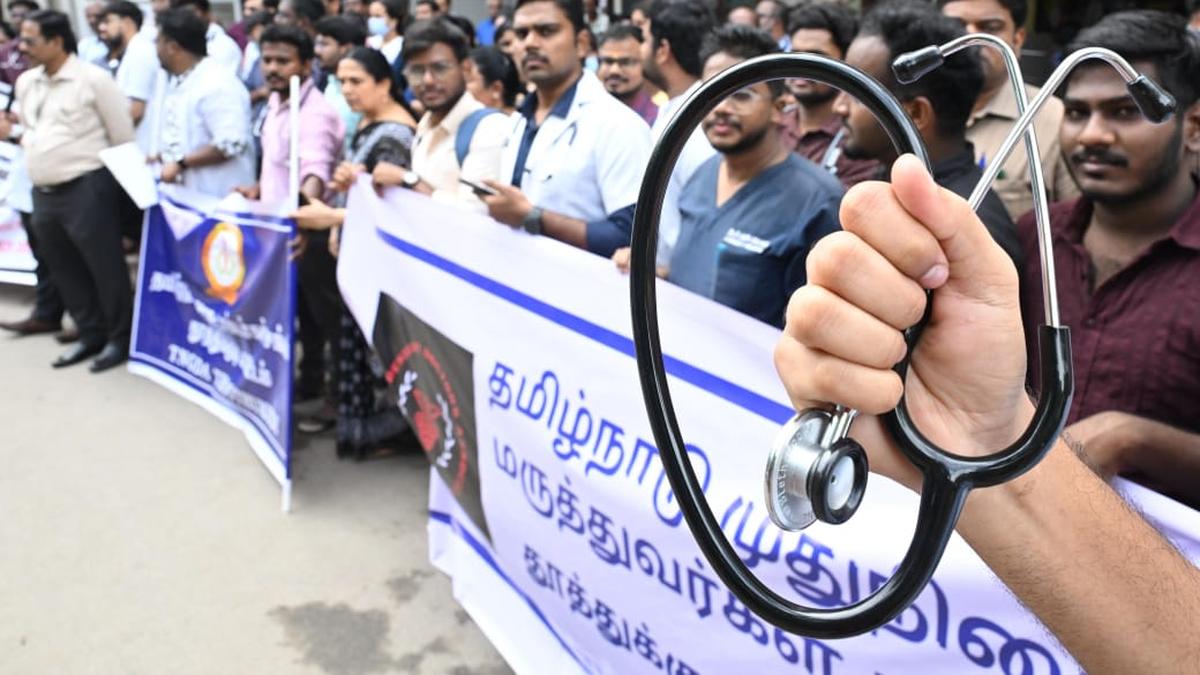
Attack on Chennai doctor | T.N. hospitals to have tag system for patient attendants: Health Minister
The Hindu
A day after a senior medical oncologist was attacked by a patient’s son inside the Kalaignar Centenary Super Speciality Hospital (KCSSH), Tamil Nadu Health Minister Ma. Subramanian on Thursday (November 14, 2024) said a tag system for patient attendants would be introduced in all government medical college hospitals, district headquarters hospitals, and taluk hospitals in the State in a phased manner.
A day after a senior medical oncologist was attacked by a patient’s son inside the Kalaignar Centenary Super Speciality Hospital (KCSSH), Tamil Nadu Health Minister Ma. Subramanian on Thursday (November 14, 2024) said a tag system for patient attendants would be introduced in all government medical college hospitals, district headquarters hospitals, and taluk hospitals in the State in a phased manner.
Such a tag system was rolled out at the Rajiv Gandhi Government General Hospital (RGGGH) in early October to restrict crowding and ensure the safety of healthcare professionals after the rape and murder of a post-graduate medical student at R.G. Kar Medical College and Hospital, Kolkata.
“The tag system was implemented at RGGGH on a pilot basis. Now, the directorates of Medical Education and Research and Medical and Rural Health Services will implement the same for patient attendants in a phased manner. This will be implemented in 36 government medical college hospitals, 37 district headquarters hospitals, and 320 taluk hospitals,” the Minister told reporters on Thursday.
There will be four colour tags to indicate where a patient is admitted — green for attendants of patients of surgical super specialities, red for those admitted to Intensive Care Units, yellow for superspeciality departments, and blue for general wards. Two tags would be issued for each patient, he added.
Based on demands from government doctors, the Minister added that metal detectors and bag scanners would be introduced on a pilot basis in one or two hospitals to study the feasibility.
He added that the number of persons seeking medical care at government hospitals had increased tremendously. “Many who were getting treated in the private sector have shifted to the government sector due to increased trust in government hospitals, improvement in infrastructure, and increase in doctors services. Earlier, pay wards were available only at RGGGH. Now, pay wards are available in nearly 15 government hospitals. Persons belonging to the middle income group are utilising these services,” he said.
Following the Kolkata incident, a number of decisions were taken during a high-level meeting convened by the Chief Secretary to improve security on hospital campuses. These decisions are being implemented by the three health directorates. This included joint security audits by the police and health departments in all government medical college hospitals and government hospitals, to ensure that all CCTV cameras are functional and footage monitored continuously, proper lighting, and strengthening of police outposts.











